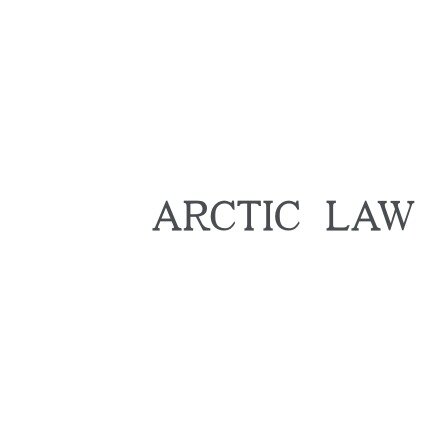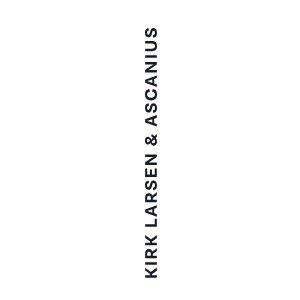Best Collaborative Law Lawyers in Nuuk
Share your needs with us, get contacted by law firms.
Free. Takes 2 min.
Free Guide to Hiring a Family Lawyer
List of the best lawyers in Nuuk, Greenland
About Collaborative Law in Nuuk, Greenland
Collaborative Law is an innovative approach to legal dispute resolution that is gaining traction in Nuuk, Greenland. This legal process allows parties involved in a dispute to work together with their respective lawyers to reach a mutually beneficial agreement without the need for court intervention. It emphasizes open communication, transparency, and a commitment to resolving differences amicably. This method is particularly effective in family law matters, such as divorce or child custody, where maintaining a cooperative relationship can be crucial.
Why You May Need a Lawyer
There are several situations where people may seek legal help in Collaborative Law in Nuuk, Greenland. These include:
- Divorce: Collaborative Law can facilitate a respectful divorce process, focusing on family dynamics and future relationships.
- Child Custody: When determining custody arrangements, Collaborative Law prioritizes the best interests of the child while maintaining parental cooperation.
- Property Disputes: Resolving property issues amicably can save time, costs, and stress related to prolonged litigation.
- Business Conflicts: Business partners might prefer to resolve disputes without damaging their professional relationships.
- Estate Simplification: Collaborative Law can help simplify estate distribution processes while minimizing family conflict.
In these situations, a lawyer trained in Collaborative Law can provide guidance, facilitate open discussion, and help draft legally binding agreements.
Local Laws Overview
Greenland, an autonomous territory within the Kingdom of Denmark, inherits much of its legal framework from Danish law, including the principles underlying Collaborative Law. However, local adaptations ensure that laws reflect the cultural and societal norms of Greenland. Key aspects of local laws relevant to Collaborative Law include:
- Emphasis on Alternative Dispute Resolution (ADR): Greenlandic law encourages ADR, including mediation and collaborative methods, to resolve disputes.
- Family Law Provisions: Collaborative Law is integrated into family law, in areas such as divorce settlements and child custody arrangements.
- Confidentiality Obligations: Cases handled through Collaborative Law uphold strict confidentiality, fostering a safe environment for open dialogue.
- Voluntary Participation: Parties must willingly opt into the collaborative process, ensuring that all parties share a common desire to resolve disputes peacefully.
Understanding these local legal nuances is crucial for anyone considering engaging in Collaborative Law proceedings.
Frequently Asked Questions
What is Collaborative Law?
Collaborative Law is a legal process that focuses on negotiation and conflict resolution outside of court, often with a focus on preserving relationships and reaching amicable solutions.
How does Collaborative Law differ from traditional litigation?
Unlike litigation, Collaborative Law emphasizes cooperation and communication, avoids courtroom battles, and seeks to find mutually agreeable solutions through joint efforts.
Is Collaborative Law a common practice in Nuuk?
While relatively new, Collaborative Law is becoming increasingly popular in Nuuk due to its effectiveness in handling disputes amicably and efficiently.
What types of disputes can be settled using Collaborative Law?
Collaborative Law is suitable for a range of disputes, including family law issues, business disagreements, and property settlements.
Is the outcome of a Collaborative Law process legally binding?
Yes, the agreements reached during Collaborative Law processes are documented and can be made legally binding through the appropriate legal channels.
Are lawyers required in Collaborative Law?
Yes, each party typically has their own lawyer trained in Collaborative Law to provide guidance and ensure the process is fair and legally sound.
What happens if one party opts out of the process?
If a party withdraws from the Collaborative Law process, the involved lawyers are usually disqualified from representing either party in subsequent litigation concerning the same issue.
What are the cost implications of Collaborative Law?
While costs can vary, Collaborative Law processes tend to be cost-effective compared to traditional litigation, as they are often faster and less adversarial.
How does confidentiality work in Collaborative Law?
The process is confidential, meaning discussions and materials disclosed during the process cannot be used in court if the process fails and leads to litigation.
What if we fail to reach an agreement through Collaborative Law?
If an agreement cannot be reached, parties may choose to pursue other dispute resolution methods, including mediation or traditional litigation.
Additional Resources
For those seeking further information or assistance with Collaborative Law in Nuuk, several resources are available:
- Governmental Legal Aid Office: Provides assistance and information on legal processes including Collaborative Law.
- Local Bar Association: Offers resources about qualified Collaborative Law practitioners in Greenland.
- Non-Profit Organizations: Several non-profit organizations focus on providing legal resources and support for family disputes and other legal issues.
Next Steps
If you find yourself in a situation where Collaborative Law seems appropriate, consider the following steps:
- Research and contact lawyers in Nuuk who specialize in Collaborative Law.
- Arrange an initial consultation to discuss your situation and explore whether the Collaborative Law process is suitable for you.
- Prepare all necessary documentation and be open to dialogue and negotiation.
- Commit to approaching the process with a focus on mutual respect and cooperation.
Taking these steps can help ensure you receive the appropriate guidance and support needed to navigate your legal issue effectively.
Lawzana helps you find the best lawyers and law firms in Nuuk through a curated and pre-screened list of qualified legal professionals. Our platform offers rankings and detailed profiles of attorneys and law firms, allowing you to compare based on practice areas, including Collaborative Law, experience, and client feedback.
Each profile includes a description of the firm's areas of practice, client reviews, team members and partners, year of establishment, spoken languages, office locations, contact information, social media presence, and any published articles or resources. Most firms on our platform speak English and are experienced in both local and international legal matters.
Get a quote from top-rated law firms in Nuuk, Greenland — quickly, securely, and without unnecessary hassle.
Disclaimer:
The information provided on this page is for general informational purposes only and does not constitute legal advice. While we strive to ensure the accuracy and relevance of the content, legal information may change over time, and interpretations of the law can vary. You should always consult with a qualified legal professional for advice specific to your situation.
We disclaim all liability for actions taken or not taken based on the content of this page. If you believe any information is incorrect or outdated, please contact us, and we will review and update it where appropriate.










